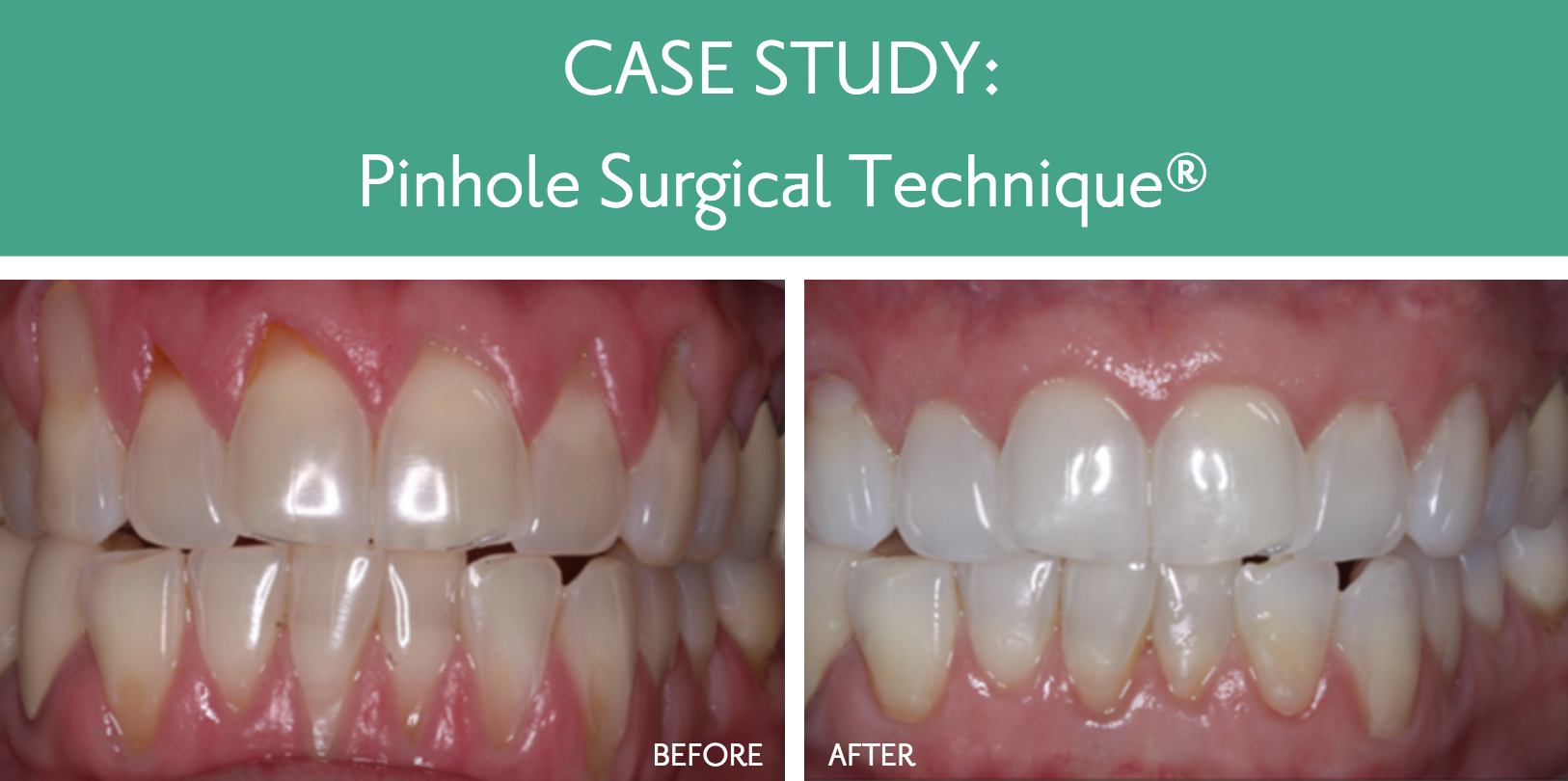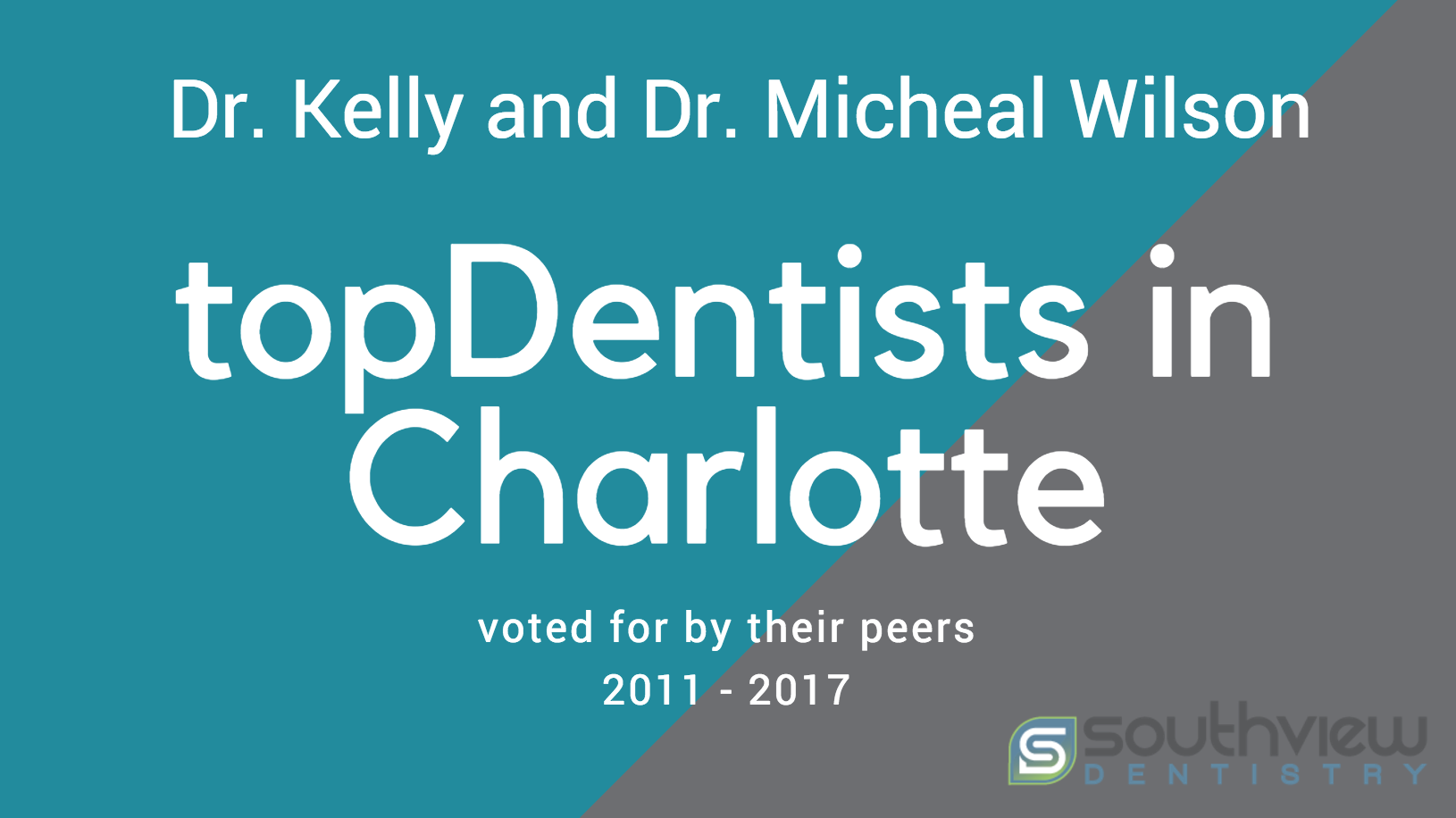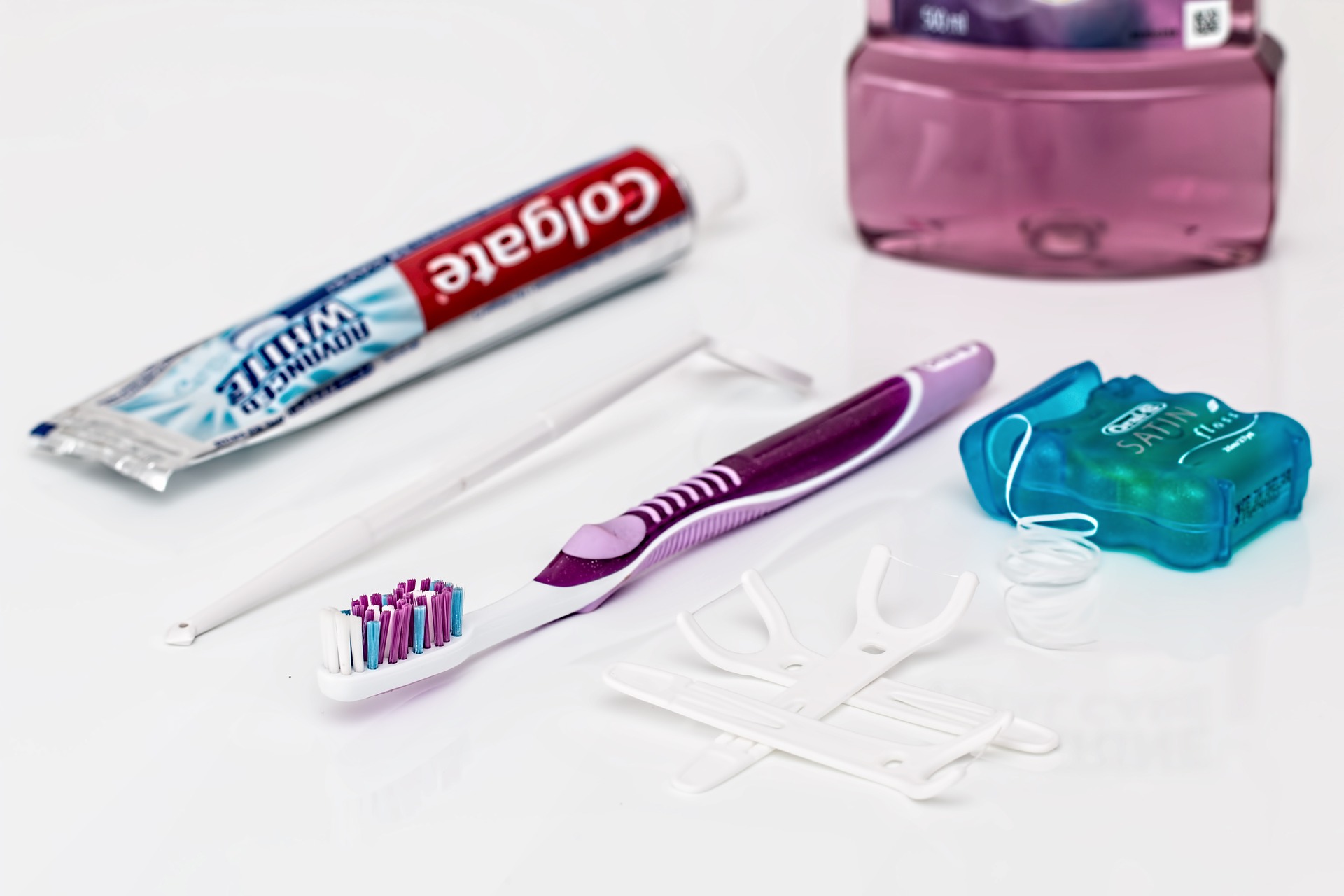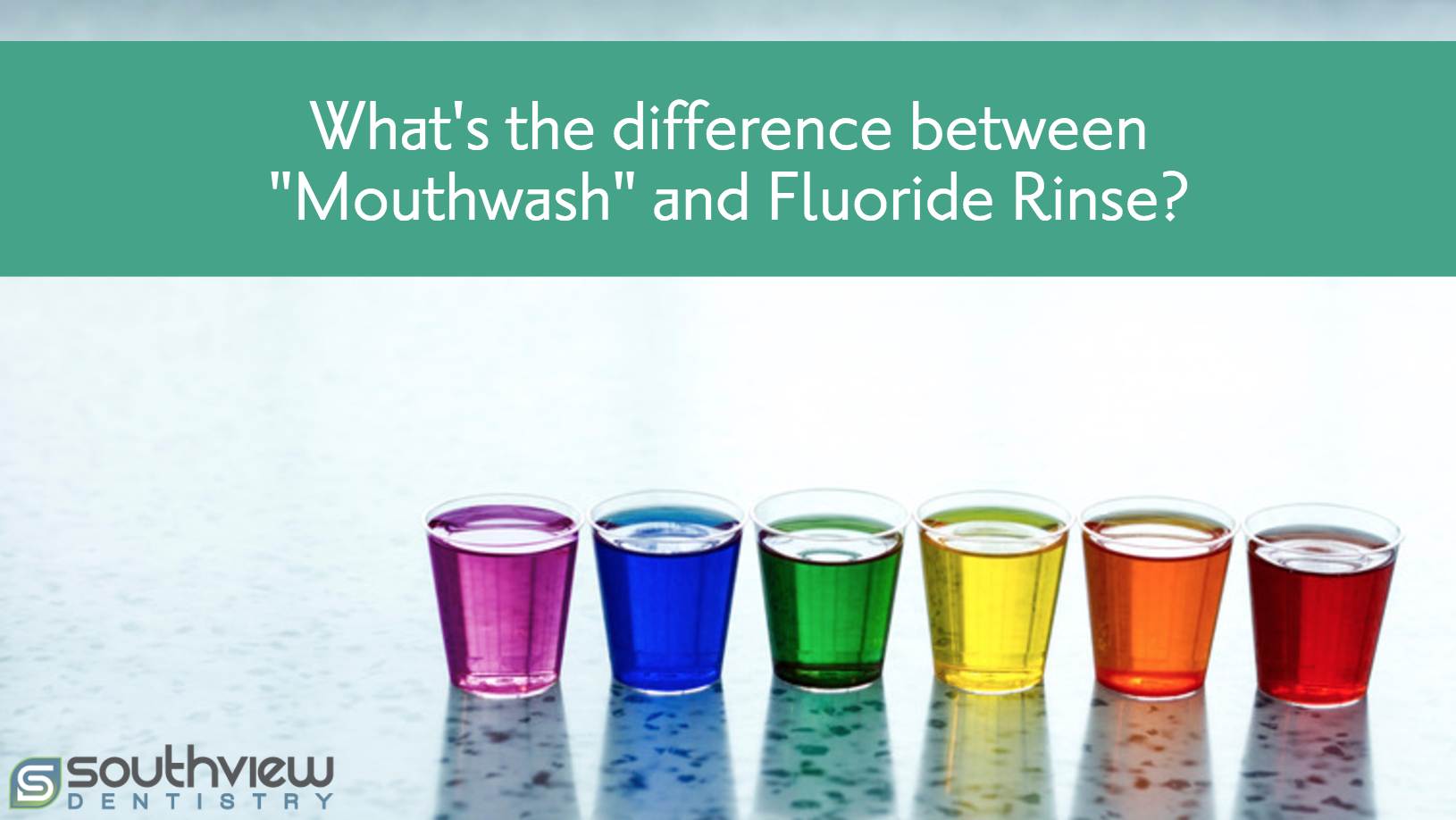
Case Study: Pinhole Surgical Technique – Pinhole Gum Rejuvenation
June 7, 2017
We’ve been named Top Dentists in Charlotte!
July 26, 2017Key Takeaways:
Distinct Functions:
Mouthwash primarily freshens breath and may include ingredients for breath-freshening, anti-cavity, or plaque prevention, while fluoride rinse protects teeth from acids produced by bacterial plaque.
Supplementary Use:
Both mouthwash and fluoride rinse are supplementary to brushing and flossing, not replacements. They should be used after completing your tooth brushing and flossing routine to enhance oral hygiene.
Choosing the Right Product:
Selecting the right mouthwash or fluoride rinse depends on individual needs, such as preference for alcohol-free products, sensitivity to ingredients, and specific oral health goals like plaque control or cavity prevention.
One of the keys things you’ll need to know when evaluating your oral care routine is the difference between mouthwash and fluoride rinse.
Mouthwash Vs Fluoride Rinse
A mouthwash freshens your breath, but it doesn’t clean your teeth. Mouthwashes are not a replacement for a regular routine of twice-daily tooth brushing and daily flossing, although they can help wash away excess food particles in your mouth. A standard over-the-counter mouthwash contains breath-freshening ingredients such as mint flavoring, but it doesn’t contain fluoride unless the label says so.
If you’d like to add a mouthwash to your oral care routine, it’s important to be aware of just what a mouthwash. Some freshen breath, others provide an anti-cavity benefit, while others contain germ-killing ingredients to help prevent plaque buildup.
A fluoride mouth rinse doesn’t remove plaque, it works by protecting your tooth from acids produced by the bacterial plaque, and it is not a substitute for brushing and flossing. The fluoride in a fluoride rinse incorporates into the enamel coating of your teeth, and it can help protect against cavities in people who are susceptible.
Remember, a mouthwash or a fluoride mouth rinse should be used after you finish your tooth brushing and flossing routine. Also, keep in mind that mouthwashes or mouth rinses are not recommended for children younger than 6 years old, because kids that age may be inclined to swallow the rinses rather than spit them out.
Choosing A Mouthwash That Is Right For You
You have many options, and the right mouthwash or rinse for you is the one that meets your dental hygiene needs for the health of your teeth and gums, and taste preference.
To help choose the right rinse, keep these points in mind:
- Alcohol—yes or no? Alcohol is a component of many mouthwashes and rinses, which can problematic if a large quantity is deliberately swallowed. If you want to buy one type of mouthwash or rinse for the whole family, and your household includes school-aged children or teens, you may want to choose from among the alcohol-free mouthwash products that are available. Also, some recovering alcoholics avoid mouthwash with alcohol because of the potential for abuse.
- Sensitivity. Some people find the ingredients in mouthwash irritating, especially people who have sensitive gums. Also, people who don’t usually complain of sensitive gums may find that their mouths are more sensitive for a short time if they are recovering from a dental procedure. If you have a sensitive mouth, consider an alcohol-free or natural mouthwash. Natural mouthwashes often contain ingredients such as aloe vera and chamomile for a soothing effect.
- Plaque control. If you want a mouthwash that not only helps control bad breath but also helps to prevent plaque buildup on the teeth, you may want to consider Crest Pro-Health Clinical Rinse which contains anti-plaque ingredients.

Benefits You Can Get From Mouthwash
A complete plan for daily dental hygiene is centered around twice-daily tooth brushing and flossing, but you may also want to consider a mouthwash.
Mouthwash may contain a variety of ingredients to battle bacteria in the mouth, including cetylpyridinium chloride (CPC), a germ-fighting ingredient which has been shown to be safe and effective, although a small number of people have reported a temporary unpleasant aftertaste.
Other oral rinse ingredients include povidone iodine and essential oils. But any oral rinse can help enhance your daily dental hygiene routine. In a recent study published in 2008 in the Journal of Clinical Pediatric Dentistry, 80 16-year-olds were randomized to use one of four mouthwashes for two weeks. Their gingival tissues were examined at the start and end of the study.
Overall, using a mouthwash with povidone iodine, essential oil, or chlorhexidine significantly reduced plaque and reduces bacterial indicators of gingivitis. A fourth mouthwash that contained an herbal extract did contribute to plaque control but the improvement was not significant.
Studies have shown that mouthwash can reduce more plaque and more signs of gingivitis when used in addition to tooth brushing compared with tooth brushing alone. Whatever mouthwash you choose, be sure to follow the instructions and avoid swallowing. And some oral rinses are not recommended for very young children if they are at risk for swallowing the rinse rather than being able to spit it out.
When To Use Mouthwash
A mouthwash or rinse does not replace a regular oral hygiene routine of twice-daily tooth brushing and daily flossing. The main function of most mouthwashes is to freshen breath, although if you suffer from severe chronic bad breath (halitosis), talk to your dentist about other ways to address the causes of the problem and manage your condition.
That said, some types of mouthwash, such as fluoride rinses, can help protect teeth against acids produced by plaque bacteria if you use them after you have thoroughly brushed and floss your teeth. And your dentist may prescribe a specific mouth rinse if you are recovering from a fungal infection or a bout of gingivitis. But if your mouthwash needs are for basic breath freshening, you can read reviews and ask friends which products they like. Mouthwashes and rinses are available in different flavors such as mint and cinnamon, and you can keep more than one type on hand for variety. If you aren’t sure whether you’d like the taste or sensation of a mouthwash, ask your dentist about getting a free mouthwash sample that you can try. Also, if you want a mouthrinse to prevent cavities or kill germs and control plaque, ask a dental professional.
Alcohol-Free Mouthwash: A Safe, Effective Mouthwash Alternative
Some people consider using a mouthwash as part of their daily oral care routine, but are discouraged by the alcohol content. For some of these people, rinsing for the recommended length of time with an alcohol-containing product (many mouthwashes are about 20 percent alcohol) is uncomfortable. Others are worried about the fact that the 20 percent alcohol content is enough to cause illness in children or teens who experiment by drinking mouthwash. Also, some recovering alcoholics avoid mouthwash because the alcohol content has been shown to trigger a relapse.
But alternatives are available. You can find alcohol-free mouthwash that provides similar oral health benefits to a typical alcohol-containing product. Consider a mouthwash with CPC (cetylpyridinium chloride). This ingredient is found in many health care products and is used in Crest’s Pro-Health line of mouthwashes. CPC has been shown to be safe and effective. In a mouth rinse, it binds to the surface of germs and causes them to burst, which helps reduce their buildup on the teeth. Just another difference between mouthwash and fluoride rinse.




